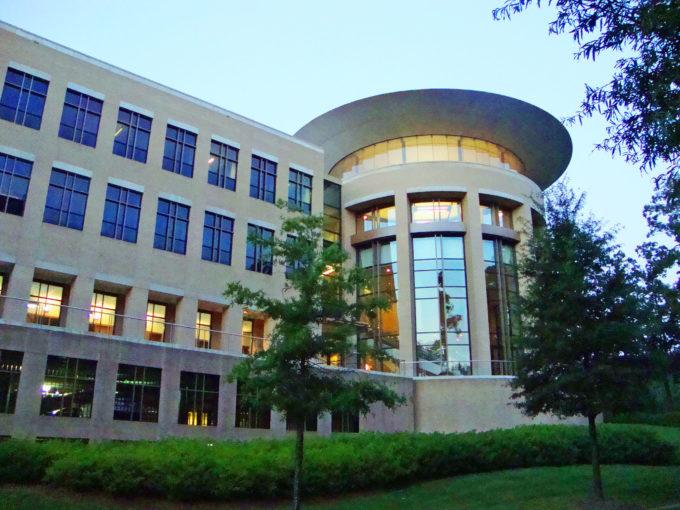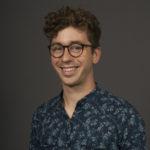
Get the latest articles delivered directly to your inbox!
Our Contributors
Class of 2022
Kyle Duke
Austin Foster
Charlotte Leblang
Ross Lordo
Class of 2021
Dory Askins
Connor Brunson
Keiko Cooley
Mason Jackson
Class of 2020
Megan Angermayer
Carrie Bailes
Leanne Brechtel
Hope Conrad
Alexis del Vecchio
Brantley Dick
Scott Farley
Irina Geiculescu
Alex Hartman
Zegilor Laney
Julia Moss
Josh Schammel
Raychel Simpson
Teodora Stoikov
Anna Tarasidis
Class of 2019
Michael Alexander
Caitlin Li
Ben Snyder
Class of 2018
Alyssa Adkins
Tee Griscom
Stephen Hudson
Eleasa Hulon
Hannah Kline
Andrew Lee
Noah Smith
Crystal Sosa
Jeremiah White
Jessica Williams
Class of 2017
Carly Atwood
Laura Cook
Ben DeMarco
Rachel Nelson
Megan Epperson
Rachel Heidt
Tori Seigler
Class of 2016
Shea Ray
Matt Eisenstat
Eric Fulmer
Geevan George
Maglin Halsey
Jennifer Reinovsky
Kyle Townsend
Join USCSOMG students on their journeys to becoming exceptional physician leaders.

“I decided not to attend medical school.”
As many of my peers intimately know, applying to medical school is–to put it incredibly lightly–very difficult. More accurately, the application cycle is an extremely strenuous, frustrating, and expensive process which offers essentially no immediate rewards and only a nightmarishly slight chance of success. Even excluding the equally difficult MCAT and requisite four years of resume building, lab work, and clinical volunteering, acceptance into medical school is not something to take for granted. Two years ago, knowing all this, freshly graduated from college and with the long sought-after letter of miraculous acceptance in hand, I decided to not attend medical school.
Four years earlier, in my undergraduate studies at USC, I focused on, in one form or another, healthcare inequality. Through the development of my knowledge, certain questions plagued me: Why do some groups of people receive more accessible care, more effective care, and more humanizing care than others? What inflates the cost of said care to such colossal and unwieldy proportions? Who is making these decisions–what kind of healthcare system requires its patients to indenture themselves just to live, just to receive what they so clearly deserve, as human beings? These questions, I’ve learned, have no clear answers. There is not a lab test to run, a diagnostic tool to calibrate or refine, no technology conceivable which can dissect or objectify these problems, and their solutions are another mystery entirely, even further shrouded in the murky world of politics and subjective opinion. I was at a loss at where to start, how to begin the work I felt could define the rest of my life.
I examined my ideas as deeply as I could, sought for clarity and consistency through research, direct experiences, and long talks with professors. However, I felt no closer to understanding how or where to begin. In this way, my curiosity had crippled me. Given such an enormously wide view of the healthcare system, I was exposed to every possible issue in a timeless struggle for equality, the marginalized groups of the world so consistently fighting for rights that they are denied with equal consistency. My studies in anthropology only cemented in me a sense of overwhelming helplessness–how could I begin to unravel the intricate, tangled mess of institutional racism, or colonial thought, or gender inequality? So when I received that letter, when the bureaucratic gates opened to me and my path to physicianship was made clear, I knew that, somehow, even that was not enough.
I will leave the school I to which I was accepted nameless, because it is a fine place to practice medicine, and I am honored to have been offered a position. However, I knew that it wasn’t the right fit for me. While I had little idea what facet of inequality to pursue, I knew I would need an institution that offered constructive growth to my ideas and efforts. It was then I stumbled into the USC School of Medicine Greenville.
More than any place I have worked or learned, I felt here a palpable sense of direction and openness to change. There is a vibrancy in this state of excitement, a vulnerable wellspring of new ideas, improvements, and a genuine willingness to do what works for patients. When I walked out of my first tour, I knew this was where I needed to study, where the progressive ideas of medicine I had fostered in my undergraduate years could flourish. Most importantly, I felt this was a place I could openly search for answers, not for the sake of some definite and final conclusion, but for the infinite and subtle process of searching with like-minded individuals, the process of discovery eventually coming to eclipse what I had incorrectly imagined as a neat resolution. Maybe there is no answer, maybe there is only this: to search and find joy in the searching, to carry those who cannot carry themselves, to learn, grow, and above all try, to work intensely for a better future, and finally to recognize that it is the future we are always chasing and that the perfect tomorrow we imagine may never come.
So, I am happy I did not attend medical school, though it was certainly not a clearly sane decision at the time. I knew then, as I know now (though, I might add, with slightly more certainty), that I will one day become a doctor. That was never something I truly doubted. What mattered to me, which mattered significantly more than the opinions of my family, my friends, and my colleagues who rightfully questioned my delay, was the ability to create whatever change is possible in my lifetime with gusto and with fervor in an environment that does not merely tolerate me, but instead actively encourages this line of inquiry. I know I may not live to see many of these changes take place, and some may never be righted at all. But, I must try–we all must–coherently, with good intentions and open minds, with the weight of hope heavy on us, calling our minds, our hearts, and our hands together.
USCSOMG is where I have chosen to take my stand, my small shove in what I can only hope is the right direction, where patient centered care, combined with a wide base of pragmatic, evidence-based education can provide me with the tools I need to accurately and effectively begin on the long road of social justice. Thankfully, I am not alone. All around me, my peers are struggling with these same questions, and their tragically complex answers. Together we are becoming a part of what I believe will become the largest and most in-depth revolution our healthcare system has seen. We understand the necessary sacrifices, and we are willing to commit.
Now, there is only everything else.
I am originally from Bluff City, Tennessee, where there is one stop light and most people wear camouflage. I dug deeper into the South in pursuit of an education, and found myself nestled in the sticky, over-warm arms of Columbia, South Carolina, where I learned about myself and the benefit of constant hydration. Since then, I have worked as a middle school teacher, bagel baker, hotel desk clerk, artist’s model, percussionist, author, and an EMT. Now, I write poetry, songs, and the occasional To-do list. I lose pens. I think most things work out. Thanks for listening.
Copyright 2021 USC School of Medicine Greenville


